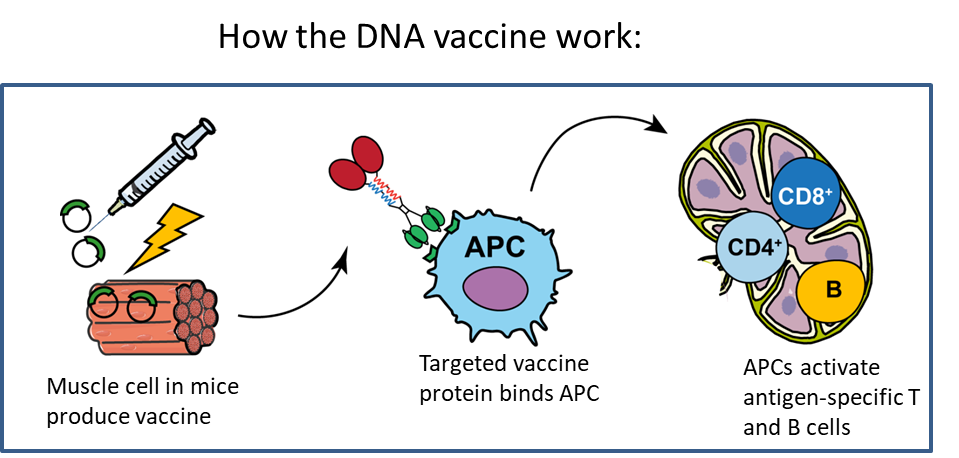Summary of the project
Influenza viruses circulate among the human population and cause significant morbidity and mortality each year. The virus continuously evolves due to genetic mutations which cause seasonal epidemics and a high risk of pandemic outbreaks. Today’s vaccines are inactivated and live-attenuated vaccines which are strain specific and protect only against matched strains. However, it is hard to predict which virus that will circulate, so the seasonal vaccine efficacy is variable and protection against pandemic strains is non-existing.
We urgently need to develop novel vaccines that elicit broader protection against seasonal and pandemic influenza strains. One approach to this is by using DNA vaccines. DNA vaccines allow for a more rapid vaccine generation able to include several antigens from different influenza virus strains. However, DNA vaccine efficiency is hampered by low immunogenicity. In our lab we have developed a novel DNA vaccine platform to overcome this. The vaccine molecules are expressed in a vector and consist of an antigen-presenting-cell (APC)-targeted unit, a heterodimerization motif and an antigenic unit. The APC-targeting domain ensure the immune response towards the antigens of interest is expanded and the heterodimerization motif makes it possible to include more antigenic units in a single targeted molecule. These novel DNA vaccines can induce high amounts of antibodies and T cell responses and protect against influenza infection in mice.
In this project we want to test and improve our DNA vaccine platform. We will test different combinations of targeting units, dimerization motifs and antigens to generate better influenza vaccines. The work will involve different methods including molecular cloning, production of DNA vaccines, DNA vaccination of mice, analyses of immune responses (antibody and T cell responses) in immunized mice and influenza challenge of the mice to follow in vivo protection.

Methods
- Molecular cloning
- Transformation of bacterial cells
- DNA Isolation
- Cell culture work
- Transient transfection of eukaryotic cells
- Protein purification
- Western Blot
- ELISA
- Flow Cytometry
- ELISpot
- In vivo DNA vaccination of mice
- Blood sampling of mice
- Influenza challenge in mice
Additional learning outcomes
- Organize a scientific project
- Arrange and plan laboratory work
- Join scientific group meetings
- Present scientific work – Oral and in writing
- Join scientific journal club
The student will become part of the scientific community at the Department of Immunology at Oslo University Hospital and work closely together with other master students, PhDs, PostDocs and researchers in the group: Molecular immunology and vaccine development.